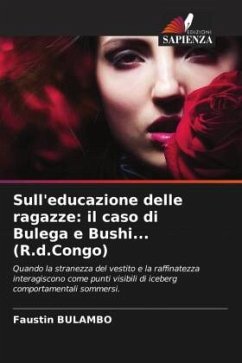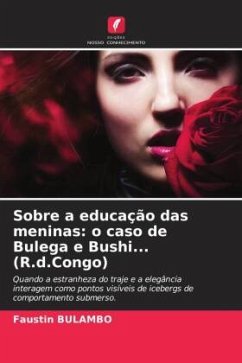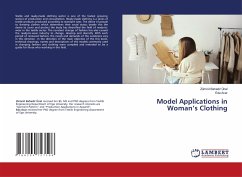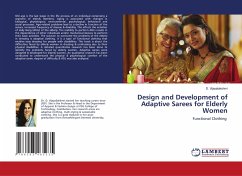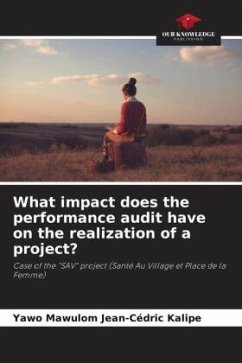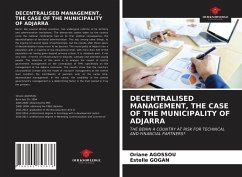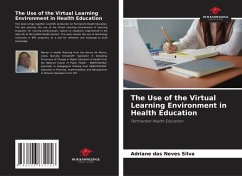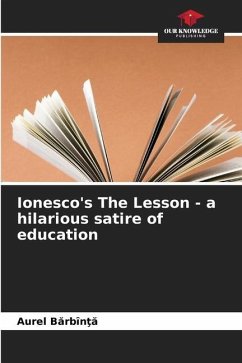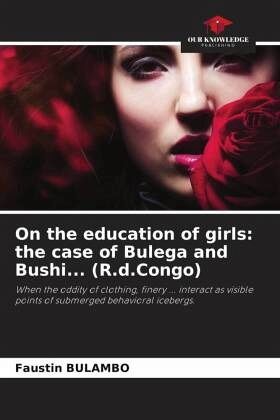
On the education of girls: the case of Bulega and Bushi... (R.d.Congo)
When the oddity of clothing, finery ... interact as visible points of submerged behavioral icebergs.
Versandkostenfrei!
Versandfertig in 6-10 Tagen
29,99 €
inkl. MwSt.

PAYBACK Punkte
15 °P sammeln!
The natural reflex would justify the overestimation of the education received by each of us and of which he (she) is obviously the product. This study was provoked by the statement, -quoted by the GRI-GRI magazine, of the then PSI/BUKAVU, according to which a Belgian Prof., visiting Smyrna said that "Today's girls know how to welcome men better than their grandmothers"; in reply to which, his interlocutor, a local shopkeeper, asked him if he had ever seen a Smyrna shopkeeper displaying all of his goods!" And to add "One thing at a time! What their grandmothers did!" The Professor's judgment ha...
The natural reflex would justify the overestimation of the education received by each of us and of which he (she) is obviously the product. This study was provoked by the statement, -quoted by the GRI-GRI magazine, of the then PSI/BUKAVU, according to which a Belgian Prof., visiting Smyrna said that "Today's girls know how to welcome men better than their grandmothers"; in reply to which, his interlocutor, a local shopkeeper, asked him if he had ever seen a Smyrna shopkeeper displaying all of his goods!" And to add "One thing at a time! What their grandmothers did!" The Professor's judgment having resulted from the contemplation of two oddly dressed, low-cut girls, one soon realizes that the apparent praise intended for said girls turns rather into a sharp criticism of their education. There is little evidence of the virtues of today's girl overcoming yesterday's; but worse, it is rather a testimony of mediocrity that reserves the star for her. Weirdness of dress, improbable adornment, blind imitation (mannequin, doll, anthropomorphic); so many indications of submerged behavioral icebergs.



